Spanish princess Infanta Cristina summoned over fraud
- Published
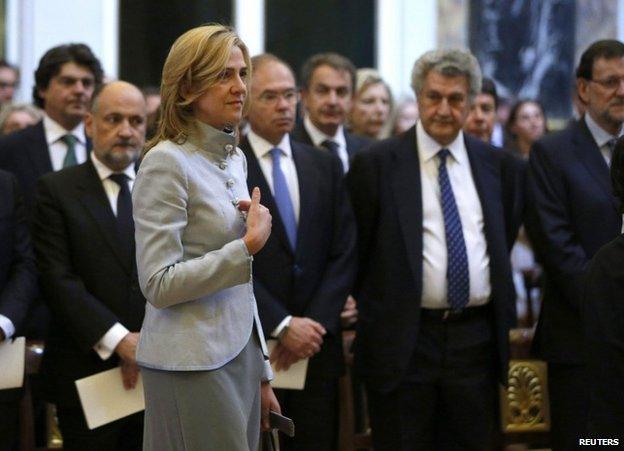
The Infanta Cristina is seen here at a Mass in Madrid in June 2013
A Spanish judge has summoned the youngest daughter of King Juan Carlos to appear in court over accusations of fraud and money-laundering.
The Infanta Cristina, 48, has been linked to the business affairs of her husband, Inaki Urdangarin, who is being investigated for alleged embezzlement.
The princess is now a formal suspect and should appear in court on 8 March.
It is believed to be the first time a direct relative of the king will appear in court accused of wrongdoing.
Palma de Mallorca court judge Jose Castro ordered the princess to appear for questioning about her partnership with Mr Urdangarin in a firm called Aizoon.
Last year, properties belonging to her husband were impounded after allegations that Mr Urdangarin, the Duke of Palma, misused millions of euros in public funds given to a charitable foundation he ran.
The duke denied wrongdoing and was not charged with any crime.
One of the properties impounded is a large luxury house on the outskirts of Barcelona belonging to the duke and the princess, who currently lives in the Swiss city of Geneva.
The Infanta Cristina is the king's middle child. She has an elder sister, Infanta Elena, and a younger brother, Crown Prince Felipe, the heir apparent.
'Spaniards relieved'
Judge Castro issued the summons despite objections from the anti-corruption prosecutor in the Balearic Islands, Pedro Horrach, who said he saw no evidence linking the princess to her husband's alleged wrongdoing, the Spanish newspaper El Pais reports, external.
When Judge Castro first tried to summon the princess last April, the bid was blocked by the provincial court in Palma de Mallorca.
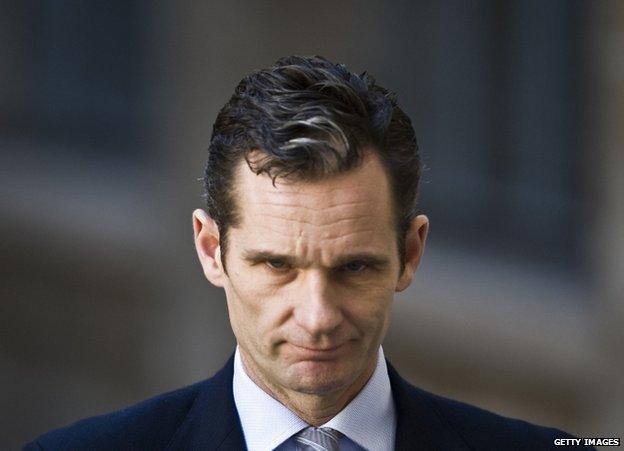
Inaki Urdangarin is seen here attending a court hearing in 2012
On that occasion, she would have been questioned over the non-profit Noos Institute, which her husband had headed. The charitable foundation had received millions of euros in public funds, which were then allegedly embezzled.
The new court summons relates to Aizoon, a company which investigators suspect served as a front for laundering the embezzled funds.
The events are alleged to have happened between 2004 and 2006, when the duke stepped down as head of Noos.
Spanish journalist Miguel Anxo Murado told BBC World Service there was a sense of satisfaction among Spaniards at the way the case was being handled.
"Most people will tell you that they felt more relieved than shocked and this includes even people who are sympathetic to the royal family," he said.
"And this is because we had come to the point at which the issue was no longer whether the princess was guilty of anything but actually whether justice is the same for everybody in Spain. And this will probably calm things down a little bit. Whether it will be sufficient for many people in this environment of economic crisis, well that remains to be seen."
'Maximum respect'
Responding to Tuesday's announcement, the royal household said it had "maximum respect for judicial decisions".
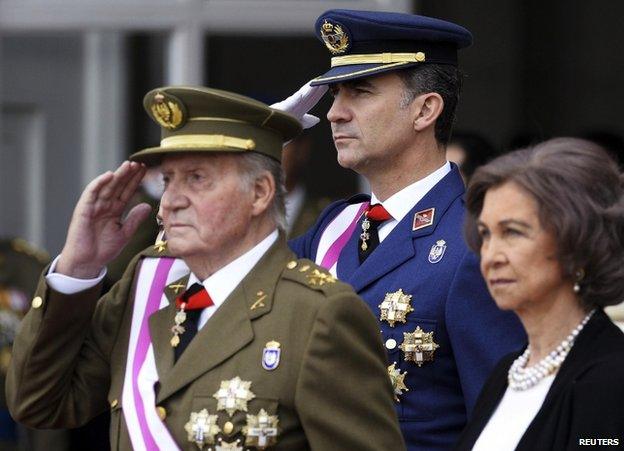
King Juan Carlos (left) is seen here with Crown Prince Felipe and Queen Sofia on Monday
News that the princess is now a formal suspect comes amid a decline in popularity for the Spanish king, 76, whose image was dented by a luxury elephant-hunting trip he made to Africa in 2012.
On Monday, he presided over a military parade on crutches at Madrid's royal palace, having recently undergone hip replacement surgery.
An opinion poll published on Sunday suggested that 62% of Spaniards wanted him to abdicate and fewer than half supported the monarchy in general.
However, the same Sigma Dos poll for El Mundo newspaper also indicated that a majority supported Crown Prince Felipe and believed he could restore the family's prestige.
Juan Carlos became king in 1975, when he oversaw the country's transition from dictatorship under the late Gen Francisco Franco to democracy.
- Published4 November 2013
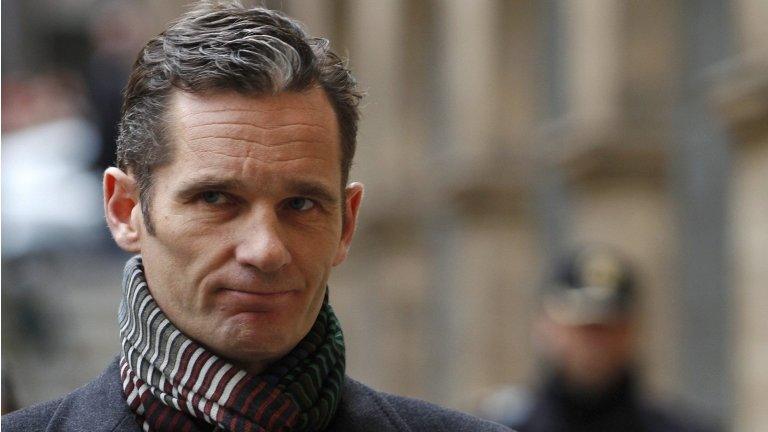
- Published3 April 2013
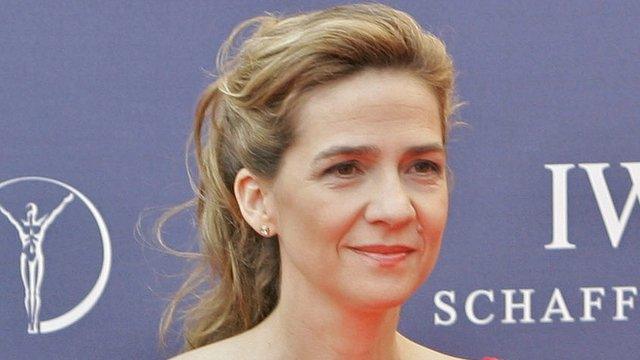
- Published21 August 2023
